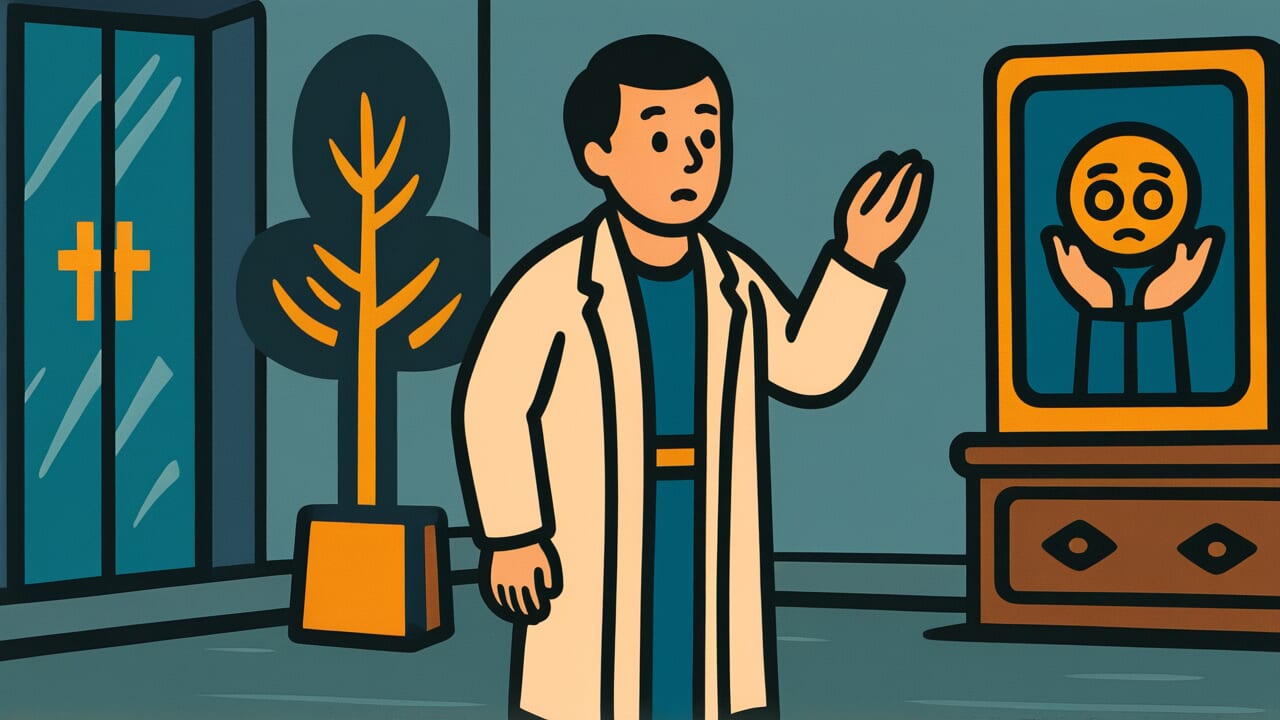How to Read “This life is more important than the afterlife”
Goshō yori konjō ga daiji
Meaning of “This life is more important than the afterlife”
This life is more important than the afterlife means you should value living in the present rather than focusing only on the next life and neglecting your current existence.
The proverb teaches that it’s backwards to ignore your family, work, and daily life just because you’re worried about happiness after death or reaching paradise.
The afterlife might be important, but today’s meals, today’s work, and today’s relationships with people are the actual reality we’re living in.
This proverb emphasizes the importance of living realistically with your feet on the ground, without leaning too heavily toward religious ideals.
In modern times, people use it beyond religious contexts. It means you should focus on what you can do now rather than worrying about uncertain future events.
The proverb expresses a practical life philosophy. Cherishing the reality in front of you and living each moment fully is ultimately the most reliable way to walk through life.
Origin and Etymology
The exact first appearance of this proverb in literature is unclear. However, its structure suggests it emerged where Buddhist thought met the practical sensibilities of common people.
“Goshō” (afterlife) is a Buddhist term referring to the next life, the world after death.
Buddhism teaches that actions in this life affect the next life through cause and effect. People were encouraged to accumulate good deeds hoping for rebirth in paradise.
Donations to temples, copying sutras, and chanting prayers were all acts meant to secure happiness in the afterlife.
“Konjō” (this life) means your current life, the present world you’re living in right now.
This proverb likely arose as a warning against neglecting present life while worrying too much about the next life.
During the Edo period, some common families reportedly struggled financially from excessive donations to temples. This practical concern may have been part of the background.
The expression doesn’t reject Buddhist teachings. Rather, it embodies the practical wisdom of common people that living this life properly is what truly matters.
You can feel the characteristically Japanese realistic thinking that balances faith with reality.
Usage Examples
- Worrying only about old age without enjoying the present is like forgetting the words “this life is more important than the afterlife”
- Saving for the future is important, but this life is more important than the afterlife—working endlessly while sacrificing family time is questionable
Universal Wisdom
The proverb “this life is more important than the afterlife” contains wisdom about a fundamental human anxiety and how to address it.
Humans are the only creatures who can imagine the future. That’s why we worry about what happens after death, tomorrow, and in old age.
This ability is a wonderful trait that has advanced humanity. But it also causes us suffering.
Anxiety about an uncertain future can make us blind to the “now” that definitely exists.
This proverb has been passed down through generations because people in every era have faced the difficulty of living “here and now.”
Edo period people worried about the afterlife. Modern people worry about retirement. Essentially, they’re the same.
We chase future happiness that might never come, rather than the happiness right in front of us. This is human nature.
But our ancestors realized something important. The future is nothing more than an accumulation of the present.
If there is an afterlife, it’s the result of how you lived this life. If there is tomorrow, it’s an extension of how you spent today.
Therefore, living the present carefully ultimately means caring for the future too. This proverb teaches us this paradoxical truth.
When AI Hears This
The human brain has a strange characteristic. When the time until a reward doubles, the brain values it at less than half.
For example, people choose 500,000 yen today over 1,000,000 yen in a year. This phenomenon is called hyperbolic discounting.
What makes this proverb interesting is that the afterlife as a reward sits at “infinite distance” on the time axis.
Behavioral economics experiments show specific patterns. A reward one week away feels about 0.9 times today’s value. One month away feels 0.7 times. One year away feels about 0.5 times.
If you extend this declining curve, rewards decades away become just a few percent of present value.
So what about happiness in the afterlife, which lies beyond decades from now? Mathematically, it approaches nearly zero.
What’s fascinating is this: even when Buddhism teaches “the afterlife is more important than this life,” the structure of the human brain makes truly believing and acting on this extremely difficult.
This proverb may seem irreligious at first glance. But actually, it’s an honest acknowledgment of the limits of human cognitive systems.
To survive through evolution, dealing with immediate food and danger was top priority. Brains that prioritized the distant future were weeded out.
This proverb sharply points to the conflict between faith and biological instinct.
Lessons for Today
The proverb “this life is more important than the afterlife” teaches us living today “the courage to focus on now.”
We’re surrounded by anxieties about the future. Will we have enough retirement funds? Is our career secure? Can we maintain our health?
These worries aren’t meaningless. But if we become too trapped by them, we miss things that can only be done in this moment.
Time watching your children grow. Time spent with loved ones. Work you can pour your passion into. Conversations with people you meet today.
All of these exist only “now.” If you keep sacrificing the present for the future, you might realize too late that irreplaceable time has passed.
This proverb doesn’t teach you to ignore the future. It teaches that enriching today is the best investment in tomorrow.
Only those who live today carefully can welcome a satisfying tomorrow.
Your life isn’t made in some distant future. It’s built from the accumulation of each day called today.



Comments